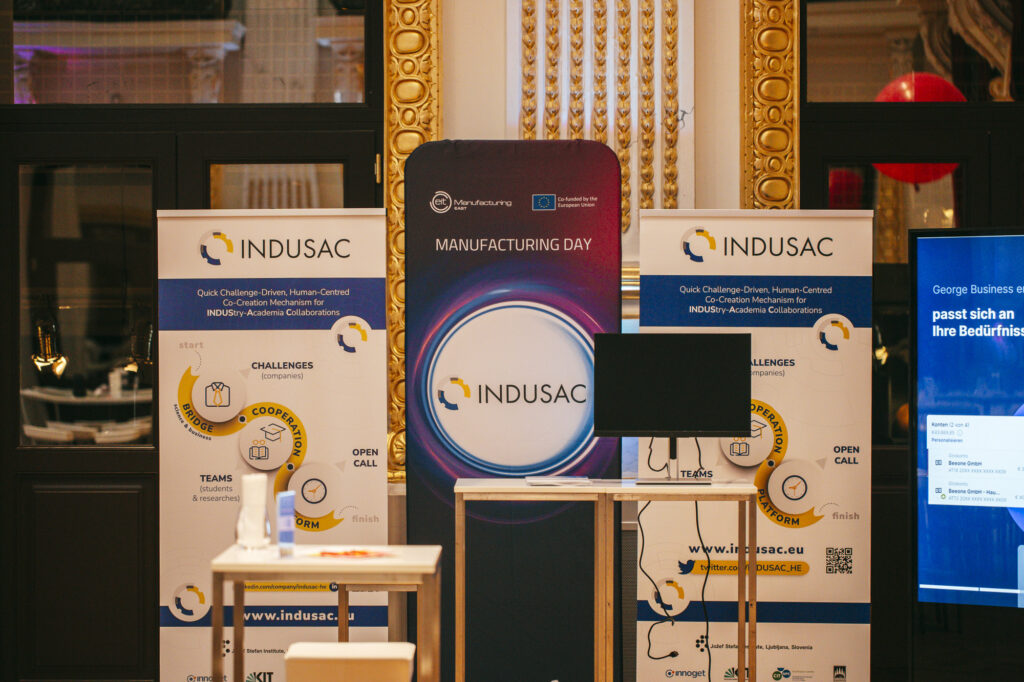Co-creating Europe’s manufacturing future: How INDUSAC bridged industry and academia
The Horizon Europe–funded project INDUSAC has officially concluded after three years, leaving a proven model for how industry and academia can work together to accelerate innovation.
Launched in September 2022, INDUSAC addressed a well-known gap: companies face urgent and complex challenges, including a growing skills shortage and the need to attract future talent, while universities host a wealth of creativity and research expertise that often remain untapped. The project’s central goal was to bring these worlds closer together through a rapid, challenge-driven and human-centred collaboration model that turns industrial needs into co-creation opportunities for students and researchers across Europe.
A digital platform for collaborative innovation
At the heart of INDUSAC was a digital platform that allowed companies to post short-term innovation challenges and enabled students and researchers to quickly form international co-creation teams. These teams, typically working for four to eight weeks, received micro-funding and methodological support to ensure meaningful, actionable outcomes.
A blueprint for co-creation
Over the course of the project, 251 innovation challenges were published by companies from different industries across Europe, leading to the formation of 163 co-creation teams that engaged more than 580 students and researchers. Importantly, 67% of participants came from EU widening countries, directly contributing to more balanced and inclusive innovation ecosystems.
The project’s impact went far beyond numbers. Students and researchers had the opportunity to work directly with companies on real-world industry challenges, developing transversal skills such as teamwork, creativity, negotiation and leadership.
For companies, INDUSAC provided actionable solutions while creating pathways to meet and collaborate with potential future employees.
Participants addressed challenges linked to sustainability, circularity, digitalisation and future skills, showing that collaborative innovation is a tangible driver for industrial transformation.
Enhancing INDUSAC’s impact across Europe
Among the nine consortium partners of the project, EIT Manufacturing played a central role in amplifying INDUSAC’s outreach across Europe, ensuring that the project’s results, opportunities and success stories reached companies, universities and innovation communities in multiple countries.
Over the past three years, we have seen firsthand how structured, challenge-driven collaboration can bridge the gap between industry and academia. By connecting students, researchers and companies across Europe, INDUSAC not only generated innovative solutions to real-world challenges but also fostered the next generation of skilled professionals. We are proud of the project’s outcomes and the strong, inclusive network it has created, which we hope will continue to inspire similar initiatives across Europe.
Urška Mrgole & Marjeta Trobec, INDUSAC Project Coordinators, Jožef Stefan Institute
As a pilot initiative, INDUSAC tested a new model for industry–academia collaboration, generating valuable insights to draw policy recommendations aimed at improving structural cooperation across Europe.
The project partners are actively exploring ways to further leverage the outcomes beyond the project’s lifetime, while continuing to share best practices and maintain the cross-border community.

Photo credit: (c) Matthias Heschl


